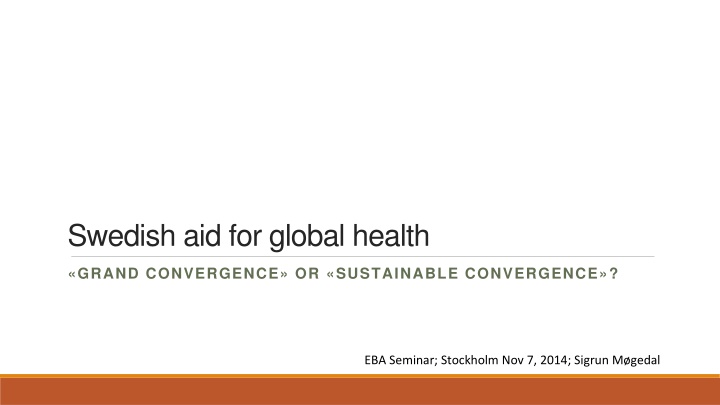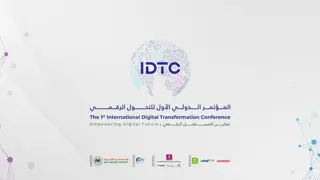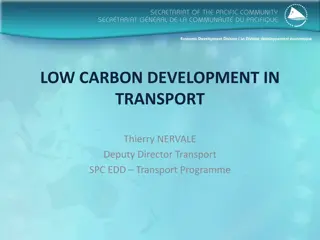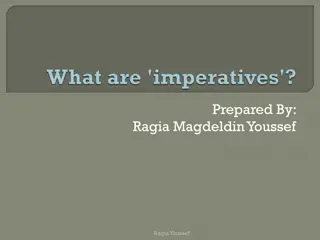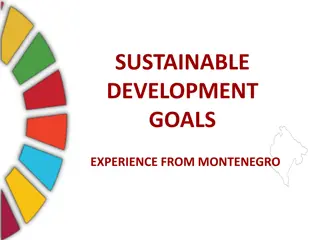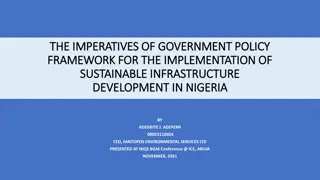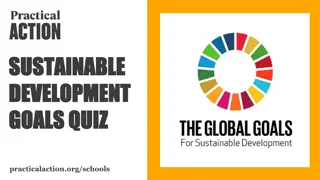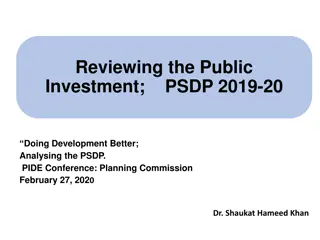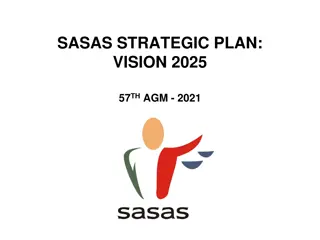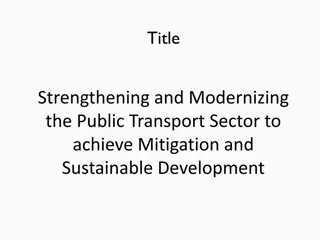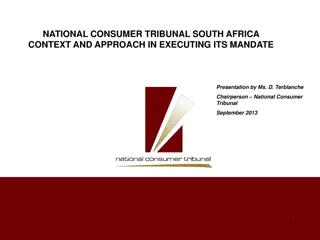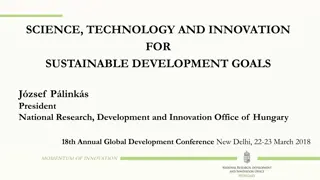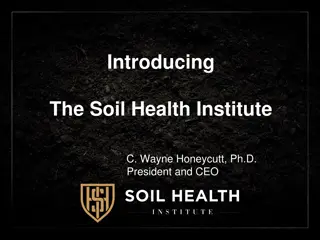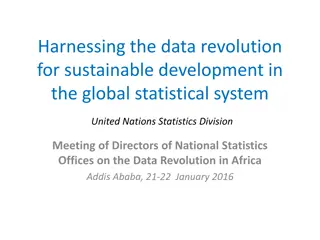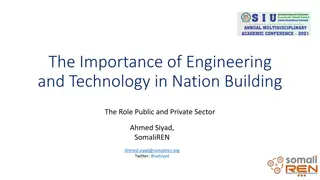Sustainable Development Imperatives for Global Health Transformation
Sustainable convergence principles are outlined for global health transformation. Discussions include strategic approaches to enhance health outcomes through investments, policy realignments, and emphasis on global public goods. The agenda highlights the need for broader actions incorporating political, social, and economic determinants for sustainable development and health equity.
Download Presentation

Please find below an Image/Link to download the presentation.
The content on the website is provided AS IS for your information and personal use only. It may not be sold, licensed, or shared on other websites without obtaining consent from the author.If you encounter any issues during the download, it is possible that the publisher has removed the file from their server.
You are allowed to download the files provided on this website for personal or commercial use, subject to the condition that they are used lawfully. All files are the property of their respective owners.
The content on the website is provided AS IS for your information and personal use only. It may not be sold, licensed, or shared on other websites without obtaining consent from the author.
E N D
Presentation Transcript
Swedish aid for global health GRAND CONVERGENCE OR SUSTAINABLE CONVERGENCE ? EBA Seminar; Stockholm Nov 7, 2014; Sigrun M gedal
The Formula for Grand Convergence" SELECTIVE SCALE UP Invest in drugs and technologies + services to deliver them Infections Maternal and child deaths Pro poor primary focus Fiscal policies for NCDs Re-align and re-focus DAH (to match true priorities ) Be pro-active on transition (responding to domestic capacity) Respond to underfunded Global Public Goods
The "Convergence Agenda STRENGTHS CHALLENGES The economic argument Political and social determinants ignored (Light touch on trade, taxes, multisector coherence) Claiming the keys for "true priorities" (Political space for national decisions and accountability) GPGs narrowed down to R&D for technologies The case for priorities The focus on Global Public Goods The compelling vision Uneasy match with post 2015 vision (Beyond mortality) No focus on effectiveness of current spending (Match with Busan type aid effectiveness ?) Relative neglect of delivery science what to how (Integrated delivery, Health and social care workforce) The focus on additional spending The case for progressive universalism
Sustainable Development Imperatives Healthy planet, healthy people, healthy economy. Economy cannot any longer override environmental and social sustainability Broader and more interconnected action on health, with synergies across sectors and dealing with political, social and economic determinants that maintain health inequity. A global agenda, beyond development assistance. Not just a matter acting with money. Common but differentiated responsibilities. Healthy people and livelihoods at the core of social sustainability. Several enablers and drivers, strategies and approaches for sustainable development are difficult to enumerate as goals, among others human rights, rights based approaches, governance, rule of law, and wider participation in decision making (quote from the OWG report, and listed as cross-cutting - also in investment cases on HIV, TB RMNCh and NCDs)
Political Determinants of Health Trans-national decisions (or lack of decisions) outside the domain of the health sector can undermine health and maintain ill health and health inequity. Political determinants are about power and choice. What matters are how this power is distributed, organized and used, who makes the choices, and what counts in making them Policy domains outside health do not recognize and respond to the health implications and health impact of their agenda setting, decisions and actions (the co-herence agenda) Institutional dysfunctions allow health inequities to persist and become deeper and more stubborn to deal with: democratic deficit, weak and fragmented accountability mechanisms, institutional stickiness , missing institutions and inadequate policy space for health Not only choices of national governments, but also those of private and corporate sector and other non-state actors have impact both within and across borders.
The Swedish Response Sweden can lead beyond Grand Convergence : Sustainable Convergence Was an early leader on GPG. Global leadership more than R&D investment in new technologies. Sweden could pick up as champion for GPGH. Shared but differentiated responsibilities. Does not shy away from acting on political, social and multi-sectoral determinants and rights should not shift to a within the health sector only focus on selective health investment Has been at front in institutional reform of the UN system and is a trusted partner for LICs + LMICs to build south/north inclusive global leadership. Enable a reformed WHO post2015 and make multilateral system fit for purpose (takes more than trust funds ) Has a basis for making UHC a unifying force . Aid effectiveness. IHP+. Investments in national horizontal capacity to make the diagonal approach work. Health workforce and health metrix. Broker new compacts for mutual accountability make equity a core measure. Health security?
The Ebola Test Preparedness (pre Ebola) Response (post Ebola) The domestic/DAH mix pre-ebola and how did it contribute to access to PHC type services with health workers on the ground? Equity measures? What changes needs to be done? Consequences for priority setting in the global health agenda nationally and globally? How did targeted health initiatives contribute to access to PHC type services with health workers on the ground? (GAVI, Polio, RMNCH, GF etc) In what ways can the diagonal approach be fit with a national horizontal capacity to make inputs serve access to PHC and HRH on the ground? In what ways did the multilateral system engage in assessing preparedness and contribute to it? How can WHO, other multilateral and bilateral partners better support responses to IHR in LIC? How would the convergence agenda contribute to preparedness? In what ways can one build a convergence agenda that ensure critical capacity in surveillance? In what ways were national institutions meant to identify and act on early warning? What is the critical capacity in the multi-sector institutional response to preparedness and EW?
